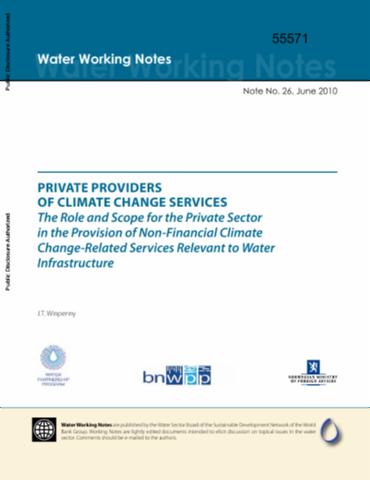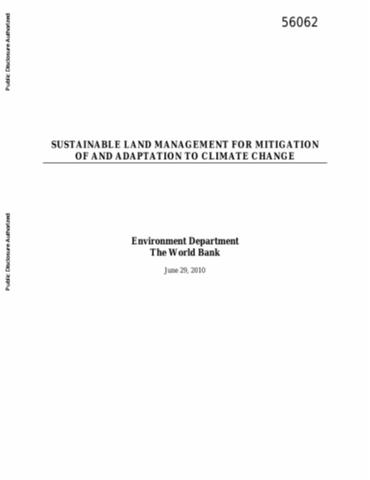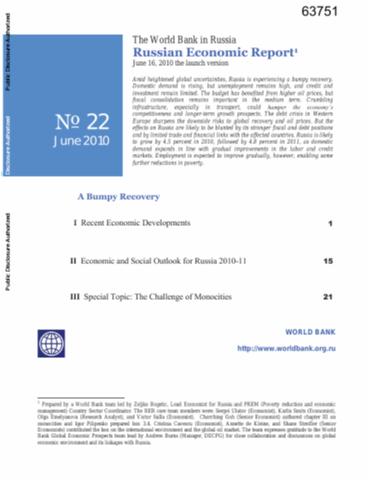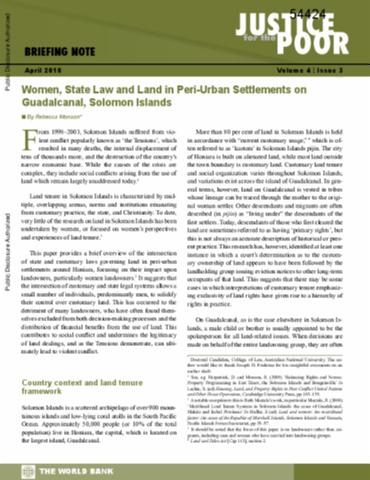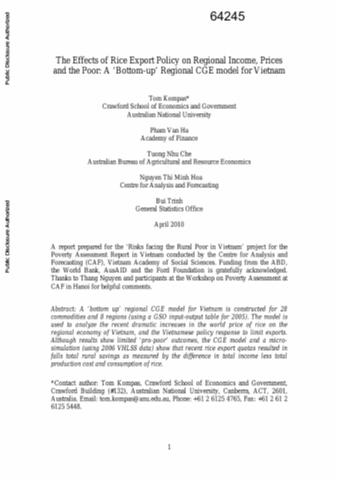The World Bank is a vital source of financial and technical assistance to developing countries around the world. We are not a bank in the ordinary sense but a unique partnership to reduce poverty and support development. The World Bank Group has two ambitious goals: End extreme poverty within a generation and boost shared prosperity.
- To end extreme poverty, the Bank's goal is to decrease the percentage of people living on less than $1.25 a day to no more than 3% by 2030.
- To promote shared prosperity, the goal is to promote income growth of the bottom 40% of the population in each country.
The World Bank Group comprises five institutions managed by their member countries.
The World Bank Group and Land: Working to protect the rights of existing land users and to help secure benefits for smallholder farmers
The World Bank (IBRD and IDA) interacts primarily with governments to increase agricultural productivity, strengthen land tenure policies and improve land governance. More than 90% of the World Bank’s agriculture portfolio focuses on the productivity and access to markets by small holder farmers. Ten percent of our projects focus on the governance of land tenure.
Similarly, investments by the International Finance Corporation (IFC), the World Bank Group’s private sector arm, including those in larger scale enterprises, overwhelmingly support smallholder farmers through improved access to finance, inputs and markets, and as direct suppliers. IFC invests in environmentally and socially sustainable private enterprises in all parts of the value chain (inputs such as irrigation and fertilizers, primary production, processing, transport and storage, traders, and risk management facilities including weather/crop insurance, warehouse financing, etc
For more information, visit the World Bank Group and land and food security (https://www.worldbank.org/en/topic/agriculture/brief/land-and-food-security1
Resources
Displaying 4666 - 4670 of 4906Private Providers of Climate Change Services
Man-made climate change is affecting water infrastructure in all regions of the world, affecting large numbers of people in their daily life and the development of their societies. As part of the World Bank Water Anchor's analytical and advisory work on water and climate change, consultants have investigated how private sector services to infrastructure may address the challenges related to climate change while, at the same time, improving development opportunities for people.
Sustainable Land Management for Mitigation of and Adaptation to Climate Change
The climate change (CC) caused by increase in atmospheric concentration of CO2 and other Greenhouse Gases (GHGs), can be addressed through adaptation and mitigation strategies. Adaptation consists of strategies which minimize vulnerability to CC. The objective is to increase resilience of the ecosystems and communities through adoption of specific sustainable land management (SLM) techniques that have adaptive benefits. On the other hand, the goal of mitigation strategies is to enhance soil and vegetation (land) sinks for absorbing atmospheric CO2 and to minimize net emissions.
Russian Economic Report, No. 22, June 2010
Amid heightened global uncertainties, Russia is experiencing a bumpy recovery. Domestic demand is rising, but unemployment remains high, and credit and investment remain limited. The budget has benefited from higher oil prices, but fiscal consolidation remains important in the medium term. Crumbling infrastructure, especially in transport, could hamper the economy's competitiveness and longer-term growth prospects. The debt crisis in Western Europe sharpens the downside risks to global recovery and oil prices.
Women, State Law and Land in Peri-Urban Settlements on Guadalcanal, Solomon Islands
This paper provides a brief overview of the intersection of state and customary laws governing land in peri-urban settlements around Honiara, focusing on their impact upon landowners, particularly women landowners. It suggests that the intersection of customary and state legal systems allows a small number of individuals, predominantly men, to solidify their control over customary land. This has occurred to the detriment of many landowners, who have often found themselves excluded from both decision-making processes and the distribution of financial benefits from the use of land.
The Effects of Rice Export Policy on Regional Income, Prices and the Poor
A 'bottom up' regional Computable General Equilibrium Model (CGE) model for Vietnam is constructed for 28 commodities and 8 regions (using a GSO input-output table for 2005). The model is used to analyze the recent dramatic increases in the world price of rice on the regional economy of Vietnam, and the Vietnamese policy response to limit exports.






